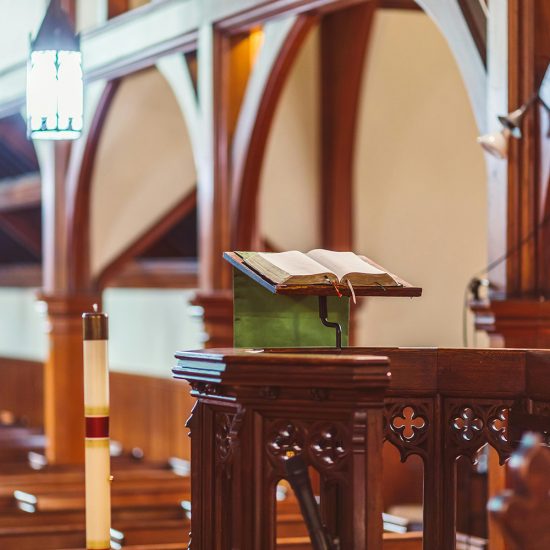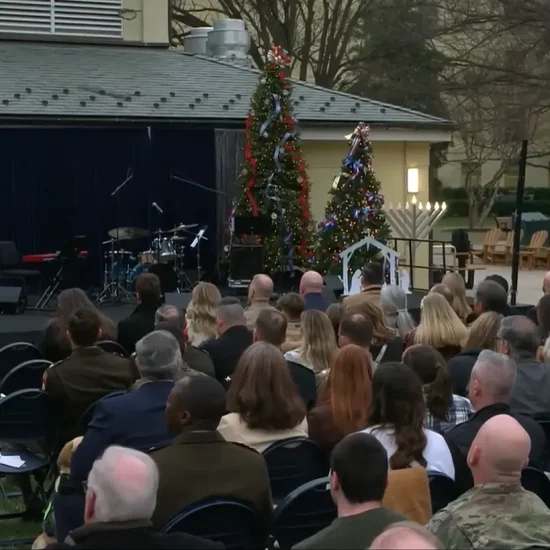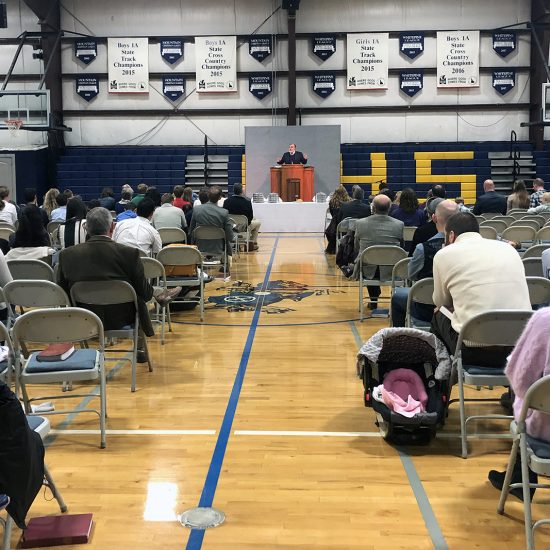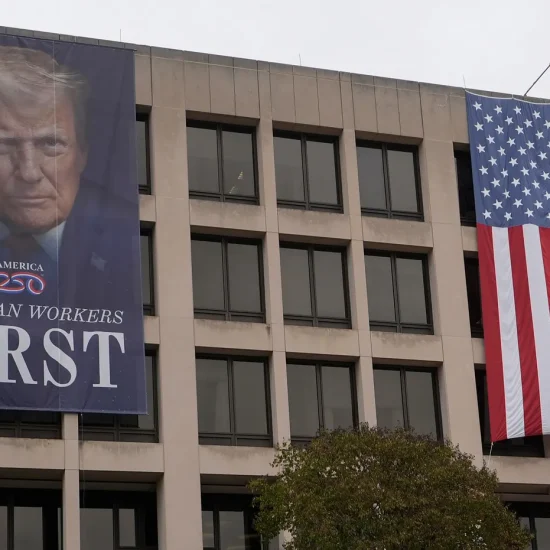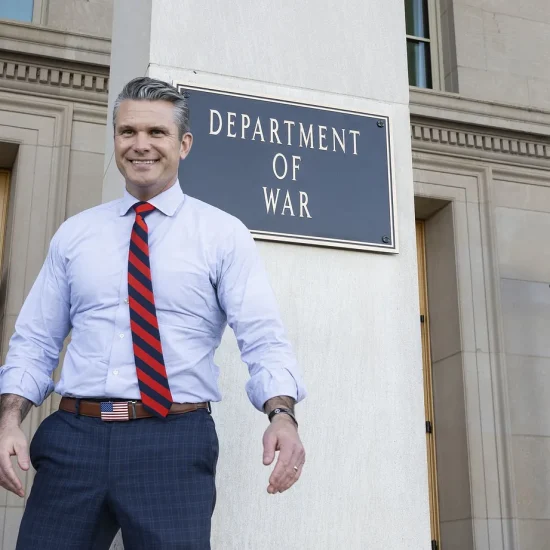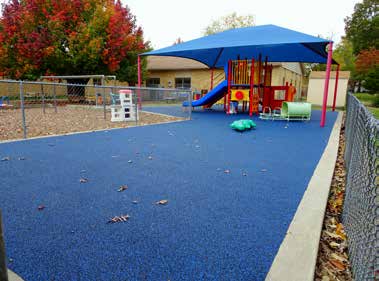
Missouri taxpayers are footing the bill for new playground surfaces at churches and Christian schools — and that likely means some public schools and city parks did not receive funding. The funding for sectarian playgrounds comes as a result of the U.S. Supreme Court’s ruling last year in the case Trinity Lutheran Church of Columbia, In. v. Comer. Despite the controversially narrow scope of that ruling, other judges and U.S. government officials have also invoked the ruling in attempts to justify many other policies well beyond what the justices actually ruled.
 New surface at Trinity Lutheran Church’s playground. (Brian Kaylor/Word&Way)Documents obtained by Word&Way from Missouri’s Department of Natural Resources show six churches or Christian schools won DNR playground scrap tire surface material grants in 2018. Those six grants amount to more than 21 percent of all grants given through the program this year — and total nearly $150,000 in taxpayer funds. Among those receiving grants in 2018 is the church that filed the suit. Trinity Lutheran’s attorneys also sought nearly $900,000 in fees from the state to cover their alleged litigation costs.
New surface at Trinity Lutheran Church’s playground. (Brian Kaylor/Word&Way)Documents obtained by Word&Way from Missouri’s Department of Natural Resources show six churches or Christian schools won DNR playground scrap tire surface material grants in 2018. Those six grants amount to more than 21 percent of all grants given through the program this year — and total nearly $150,000 in taxpayer funds. Among those receiving grants in 2018 is the church that filed the suit. Trinity Lutheran’s attorneys also sought nearly $900,000 in fees from the state to cover their alleged litigation costs.
In 2012, Trinity Lutheran Church in Columbia, Mo., applied for a state grant that reimburses non-profits for purchasing and installing recycled tire scraps to resurface playgrounds. Missouri officials rejected the application, citing a state constitutional clause barring money to aid churches. Missouri’s first Constitution in 1820 included a provision — based on earlier provisions elsewhere from the colonial era that some Baptists advocated for — prohibiting tax dollars from paying the salaries of clergy or funding the construction of houses of worship. A state constitutional amendment in 1870 expanded that to religious schools. The new constitution in 1875 included the earlier prohibitions, declaring that “no money shall ever be taken from the public treasury, directly or indirectly, in aid of any church, sect or denomination of religion.”
Despite the prohibition — which is similar to those in three dozen other states — Missouri state officials sometimes ignored the prohibition and granted tax dollars to houses of worship or sectarian schools. In fact, a Word&Way analysis of the playground scrap tire surface material grant program shows a brief period when officials included sectarian institutions. From 1993-2016, six churches (or their on-campus daycare or school) received a grant, with one in 1997, three in 1998 and one in 1999. Among those recipients were two Baptist churches, two Disciples of Christ churches, an Assembly of God church and a Catholic church. Additionally, an independent, non-denominational school received a grant in 2003.
By the time Trinity Lutheran applied for its on-campus preschool, state officials had not funded a church’s playground in 13 years, having decided the constitutional provision applied to the playground scrap tire surface material grants that directly provide tax dollars as a reimbursement. Trinity Lutheran sued in 2013, arguing the denial of funds violated their First Amendment and Equal Protection Clause rights. Both the federal district court and appeals court ruled against the church.
The Supreme Court agreed to hear the case on Jan. 15, 2016 — but it then took another 15 months with many twists before they actually did. Less than a month after the Court agreed to hear the case, Justice Antonin Scalia died. Senate Republicans refused to even consider then-President Barack Obama’s nominee, Merrick Garland — thus leaving the Court with just eight justices for a record 422 days. Perhaps concerned at the potential of a 4-4 ruling, oral arguments in the Trinity Lutheran case (and in some other significant cases) were not set when the Court started its new term in October 2016.
The next month, Missourians elected a new governor and attorney general — with Republicans to replace Democrats in both positions in January 2017. Outgoing Attorney General Chris Koster, who had defended the state’s position and filed the case’s written briefs to the Supreme Court lost the gubernatorial contest to Eric Greitens. Meanwhile, Josh Hawley won the Attorney General’s race, but recused himself from the case because he had previously helped write a brief to the Court defending the church’s position.
Then, just six days before oral arguments would finally start in April of 2017, Greitens suddenly reversed the state’s position and ordered the DNR to consider houses of worship in the playground scrap tire surface material grants program. As a result, the rest of the AG’s office recused themselves, arguing they needed to defend the new gubernatorial policy. The AG’s office instead asked James Layton, who had served in the AG’s office during Koster’s term, to defend the previous Missouri policy in oral arguments.
Barely a month later — and before the Supreme Court issued its ruling to settle if churches could receive the funds — the 2017 application deadline passed for the playground scrap tire surface material grants. One church — a Disciples of Christ congregation in Columbia — received a grant later that year. More would come in 2018 after the Court in June of 2017 ruled Missouri could not disqualify houses of worship from the program.
The Court ruled in favor of Trinity Lutheran Church in late June of 2016, declaring that the state had to provide direct aid to houses of worship. As Justice Sonia Sotomayor explained in her dissenting opinion, the ruling “profoundly changes” the relationship between church and state by “holding, for the first time, that the Constitution requires the government to provide public funds directly to a church.”
The 2018 grant recipient list shows the dramatic shift in the program following the Court’s ruling. Churches or Christian schools won six of the 28 grants and just over 21 percent of the funds. In addition to Trinity Lutheran Church, others receiving tax dollars include a nondenominational church in Moberly, the Christian school run by Concord Baptist Church in Jefferson City, a nondenominational school in Macon and Catholic schools in Joplin and Saint Charles. Those six groups together will receive $148,597 from taxpayers. Not included on the list from DNR are which projects, if any, did not receive funding because the six religious institutions received grants.
In addition to Trinity Lutheran winning a grant of $18,221 to resurface the playground at its church, the church’s attorneys in August sent a $884,000 bill to Missouri. The bill from Alliance Defending Freedom, a conservative group that represented the church, included attorney rates of up to $695 per hour as well as expenses the Missouri Attorney General’s office called “luxury travel accommodation and dinner for plaintiff’s representatives.” While Hawley had supported the church’s position, he challenged the high hourly rate and the number of hours claimed.
On Nov. 7, U.S. District Judge Nanette Laughrey agreed with Hawley’s arguments and slashed the ADF’s fees and expenses to $433,700 to be paid by Missouri taxpayers. Laughrey cut hourly rates down by up to $200 per hour and eliminated many of the claimed expenses, including snacks and laundry. The judge also removed one-third of the claimed billable hours, including time used for media interviews, meeting with a member of Congress and ten moot court practice sessions held in several states that the lead attorneys did not even attend. Among the billable hours noted by Laughrey as problematic was when Michael Whitehead, a member of the ADF’s team who also serves as legal counsel for the Missouri Baptist Convention, billed one hour for reading a court order only three sentences long.
Future church-state (play)grounds
When the Supreme Court ruled for Trinity Lutheran Church, it did so with an unusual split. Although seven of the nine justices ruled the church should be allowed to participate, those judges splintered over whether or not the ruling applied just to playground resurfacing or broader cases of giving tax dollars to houses of worship. As a result, no full opinion — including the majority decision — actually received the support of at least five justices.
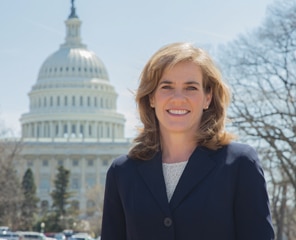 Holly HollmanHolly Hollman, general counsel for the Baptist Joint Committee for Religious, called it a “narrow decision,” adding that “the majority decision explicitly avoids addressing ‘religious uses of funding or other forms of discrimination.’” The BJC, which represents more than a dozen Baptist bodies to advocate for religious liberty for all, filed a brief before the Court urging a decision backing Missouri. The BJC argued state direct aid should not go to houses of worship, a position Baptists have long held.
Holly HollmanHolly Hollman, general counsel for the Baptist Joint Committee for Religious, called it a “narrow decision,” adding that “the majority decision explicitly avoids addressing ‘religious uses of funding or other forms of discrimination.’” The BJC, which represents more than a dozen Baptist bodies to advocate for religious liberty for all, filed a brief before the Court urging a decision backing Missouri. The BJC argued state direct aid should not go to houses of worship, a position Baptists have long held.
“Restrictions on funding religious institutions stem from the lessons of history, which are often overlooked today,” Hollman said to Word&Way. “Government funding of churches presents a particular risk of unconstitutional government interference in religion because the constitution forbids government from financing worship, proselytizing or other specifically religious activities — activities we expect from churches.”
Sotomayor critiqued the uncertainty caused by the split majority in her dissent, arguing the ruling “can be manipulated” to “enable tomorrow” other efforts to redraw church-state lines. Seventeen months later, her warning proves prophetic. Lower court judges and government officials have cited the Trinity Lutheran case to justify several decisions that extend well beyond scrap tires and playgrounds. As Sotomayor predicted, the Supreme Court may soon hear some of these cases.
In September of 2017, three Texas churches filed a lawsuit challenging a Federal Emergency Management Agency’s policy barring houses of worship from receiving federal disaster relief funds. The suit cited the Trinity Lutheran case as they sought funds after Hurricane Harvey. FEMA, now led by individuals appointed by President Donald Trump, declined to even defend the longstanding policy. However, a federal judge in December of 2017 still ruled in favor of FEMA’s policy, calling it “distinguishable” from Trinity Lutheran since the Texas churches sought funds for their buildings and therefore to support “religious activities.”
Yet, FEMA the next month changed its policy anyway to allow direct aid to houses of worship. FEMA even cited the Trinity Lutheran case as justification for the policy change despite the judge explicitly rejecting such application. FEMA explained it changed the policy “so as not to exclude houses of worship from eligibility for FEMA aid on the basis of the religious character or primarily religious use of the facility.”
In February, Trump signed a budget bill that codified the new FEMA policy, though legal challenges could still emerge challenging such direct aid to houses of worship. The budget bill declared, “A church, synagogue, mosque, temple or other house of worship, educational facility or any other private nonprofit facility, shall be eligible for contributions … without regard to the religious character of the facility or the primary religious use of the facility.”
FEMA is not alone within the current administration in seeking to implement a broad interpretation of the ruling. In May, the U.S. Department of Education announced a review of rules that prevent federal funding of faith-based entities, alluding to the Trinity Lutheran case as justification. Education Secretary Betsy DeVos had previously celebrated the Trinity Lutheran ruling, claiming it “sends a clear message that religious discrimination in any form cannot be tolerated in a society that values the First Amendment.” She also argued the ruling should lead to overturning state prohibitions on state funding of parochial schools.
In August, the U.S. Department of Labor issued a directive to the Office of Federal Contract Compliance Programs that suggests the OFCC should issue religious exemptions to groups claiming that following nondiscrimination laws would conflict with their religious beliefs. The directive repeatedly cites Trinity Lutheran, even though that case did not involve employment discrimination. A final version of the new regulations could come in early December that may allow federal contractors and subcontractors to still claim religious exemptions from laws barring “discriminating on the basis of race, color, religion, sex, sexual orientation, gender identity, national origin, disability or status as a protected veteran.”
In October, then-U.S. Attorney General Jeff Sessions ordered his newly-created “religious liberty task force” to consider the Trinity Lutheran case and review if religious entities have adequate access to government benefits. In his remarks, which were interrupted by Baptist and Methodist clergy, he called Trinity Lutheran “a significant ruling.” Sessions then broadly defined the Supreme Court’s ruling as holding “that a state policy denying grant money to any applicant owned or controlled by a religious entity violated the free exercise clause of the First Amendment.”
Hollman and others at the BJC are watching these developments arise.
“We should all beware of attempts to expand Trinity Lutheran in ways that will fund religion and bring unwanted regulations on religious institutions,” she said. “Many who seek government funding for their religious institutions obscure the decision without regard to its limit.”
While various federal government officials push for broader interpretations of the Trinity Lutheran case to go beyond what some of the justices who backed the church actually advocated, several lower court judges have advanced a narrower reading of the case. The Massachusetts Supreme Court ruled in March against a church seeking a state historic preservation grant for a stained glass window, arguing the inherently religious nature of the window makes it significantly different from funds for playground surfaces. The New Jersey Supreme Court similarly ruled that awarding historic preservation grants to churches violated the state’s constitutional prohibition on direct aid to houses of worship.
“The holding of Trinity Lutheran does not encompass the direct use of taxpayer funds to repair churches and thereby sustain religious worship activities,” the justices explained. “We therefore find that the application of the Religious Aid Clause in this case does not violate the Free Exercise Clause.”
The case has been appealed to the U.S. Supreme Court, though the justices have not yet said if they will hear it or not. Other cases are also emerging, such as lawsuits in Maine and Washington arguing the Trinity Lutheran ruling means religious schools must be included in state programs distributing tax dollars to schools.
Those and other cases, as Sotomayor predicted, may soon be heard before the nation’s highest court. In the meantime, taxpayers in Missouri and elsewhere will be sending money directly to churches and religious organizations.

